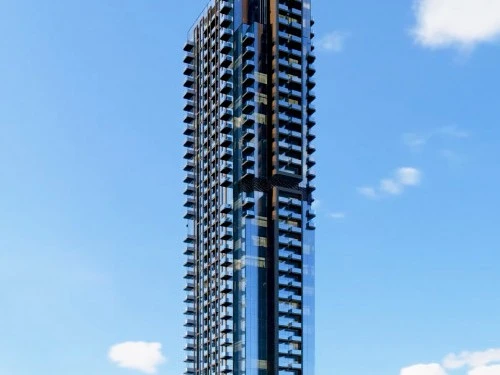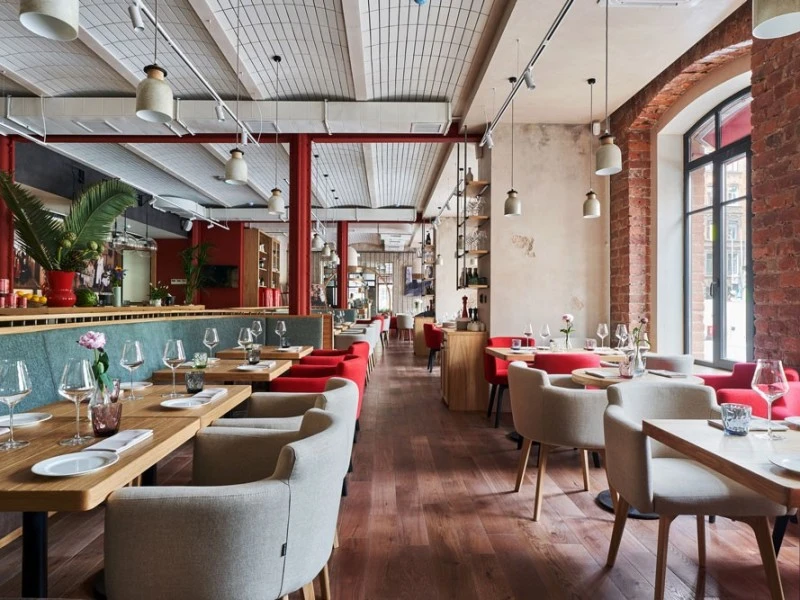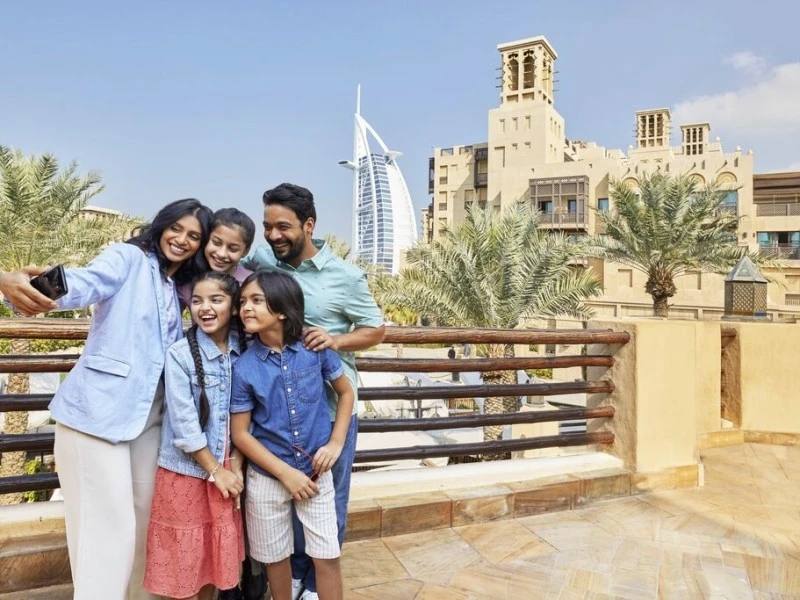UAE visa amnesty: How overstay grace period helped thousands of illegal expats
The UAE announced a two-month amnesty program that will start on September 1 this year to "allow violators with a new opportunity to regularise their visa status". After years of living illegally, many expats could see their families, friends, and loved ones again, thanks to the country's amnesty scheme.
Six years ago, on August 1, 2018, the UAE launched its third residency amnesty since 2007. This gave hopes to thousands to no longer live in fear as they started afresh. The move allowed many residency violators to adjust their status or leave the country easily.
Although it was announced only for 90 days until October 31, 2018, the federal government extended it until December 31. Those who resolved their absconding cases could regularise their employment and residency status. One individual even returned home to marry after her huge overstaying fine was waived.
After Thursday's announcement, Federal Authority for Identity, Citizenship, Customs and Port Security (ICP) will soon reveal the procedures for the latest amnesty. In the meantime, we look back at how the last amnesty program kicked off, which Khaleej Times has comprehensively reported on the ground since Day 1.
High hopes on Day 1
Several amnesty centres were set up across the UAE, and news about the general reprieve was the main headline for days. In Dubai, thousands of overstaying residents trooped to the General Directorate of Residency and Foreigners Affairs (GDRFA)-Dubai in Al Awir. It was a hot summer day, but people did not mind the heat as they came with high hopes that day.
Huge air-conditioned tents were set up, and Dubai Police coordinated the flow of traffic and movement of people. Among those who came early to avail of the amnesty was 60-year-old Pakistani Zeher Jahan, a carpenter in the UAE for 30 years. He came in a wheelchair. His visa expired years ago, and his only wish was to go home and be reunited with his family in his twilight years.
Many of those who came on Day 1 were Indians, Pakistanis, Sri Lankans, Bangladeshis, and Filipinos. Numerous Chinese expats also went to the Al Awir centre for amnesty—many had overstayed their visas since 2016 when they were granted visas on arrival.
One of the Bangladeshis who came that day was 30-year-old Mohammed Bilal. His labour card and passport expired in 2013. He came to the UAE to work as a mason in 2010 with a salary of Dh800. He could not ask for better because he was staying illegally, and the only way to get a more secure job was to avail of the amnesty.
A blessing for a mother
Emotions ran high, and for a mother like then 53-year-old Filipina expat Ana Almosa, the amnesty was the answer to her long-time prayer to come home and see her only child.
She arrived legally in Dubai in 2008 and worked in a salon till 2015 until her contract ended. She was not able to find another suitable employment and her overstaying fine reached more than Dh15,000, making her unable to leave the country.
Speaking to Khaleej Times, she could not help but cry as the fine was lifted and she was allowed to return to the Philippines with no penalties. "Thank God, this (amnesty) is a blessing," she said while breaking down in tears.
There was also a father who brought along his five-year-old daughter. They both applied for amnesty. As a bonus, the Philippine Consulate announced that they would pay the fees and plane tickets for Filipino expats who availed of the UAE's amnesty programme.
EGSH in Dubai simplifies UAE government services like visa renewals, trade licenses, and Ejari registration, all in one day and one location.
Ellington Properties, one of Dubai’s leading design-led real estate developer, has appointed Dutco Construction Co LLC, a trusted tier 1 contractor, a









_thumbnail.webp)




o_thumbnail.webp)






_0_1_2_3_4_5_6_7_8_9_10_11_12_13_14_15_16_thumbnail.webp)




_thumbnail.webp)
_thumbnail.webp)

_thumbnail.webp)
_thumbnail.webp)
_thumbnail.webp)
_thumbnail.webp)
_thumbnail.webp)


_thumbnail.webp)
_thumbnail.webp)

_thumbnail.webp)




_thumbnail.webp)

_0_1_2_thumbnail.webp)
















_0_thumbnail.webp)
_0_thumbnail.webp)
_thumbnail.webp)

_0_1_2_3_4_5_6_7_8_9_10_11_12_13_14_15_16_17_18_19_20_21_22_23_thumbnail.webp)



_0_1_2_3_thumbnail.webp)







_0_1_2_3_4_5_6_7_thumbnail.webp)
_thumbnail.webp)
_thumbnail.webp)
_thumbnail.webp)

_0_1_2_3_4_5_6_7_8_thumbnail.webp)
_0_1_thumbnail.webp)

_0_1_2_thumbnail.webp)




_0_1_2_3_4_5_6_7_8_9_10_11_thumbnail.webp)


_0_1_2_3_4_5_6_7_8_9_10_11_12_thumbnail.webp)





_0_1_2_3_4_5_6_thumbnail.webp)

_0_1_2_3_4_5_6_7_thumbnail.webp)



_0_thumbnail.webp)



_thumbnail.webp)

_thumbnail.webp)
_thumbnail.webp)


_thumbnail.webp)






_thumbnail.webp)
_thumbnail.webp)
_thumbnail.webp)
_thumbnail.webp)
_thumbnail.webp)




_thumbnail.webp)
_thumbnail.webp)
_thumbnail.webp)






_thumbnail.webp)
_thumbnail.webp)
_thumbnail.webp)



_thumbnail.webp)
_thumbnail.webp)



_thumbnail.webp)
_thumbnail.webp)
_thumbnail.webp)

_thumbnail.webp)
_thumbnail.webp)

_thumbnail.webp)





_thumbnail.webp)



_thumbnail.webp)
_0_1_2_3_4_5_6_7_8_9_10_11_12_13_14_15_16_17_thumbnail.webp)





_thumbnail.webp)
_thumbnail.webp)
_thumbnail.webp)
_thumbnail.webp)
_thumbnail.webp)

_thumbnail.webp)


_thumbnail.webp)




_thumbnail.webp)
_thumbnail.webp)

_thumbnail.webp)

_thumbnail.webp)
_thumbnail.webp)
_thumbnail.webp)
_thumbnail.webp)
_thumbnail.webp)


_thumbnail.webp)
_thumbnail.webp)



_thumbnail.webp)














_thumbnail.webp)

_thumbnail.webp)

























_0_1_2_3_4_thumbnail.webp)














_0_1_2_3_4_5_6_7_8_9_10_11_12_13_14_15_16_17_18_19_20_21_22_thumbnail.webp)



_0_1_2_3_4_5_6_7_8_9_10_11_12_13_14_thumbnail.webp)






























_thumbnail.webp)





















_0_1_2_3_4_5_6_7_8_9_10_11_12_thumbnail.webp)

_0_1_2_3_4_5_6_7_8_9_thumbnail.webp)

















_thumbnail.webp)



_thumbnail.webp)



_0_1_2_thumbnail.webp)




_0_1_2_3_4_5_6_7_8_9_10_11_12_13_thumbnail.webp)








_0_thumbnail.webp)
_thumbnail.webp)





Reviews
Please submit your comment.
It will be displayed after the approval of admins.
To do this, please login first
No comment submitted yet